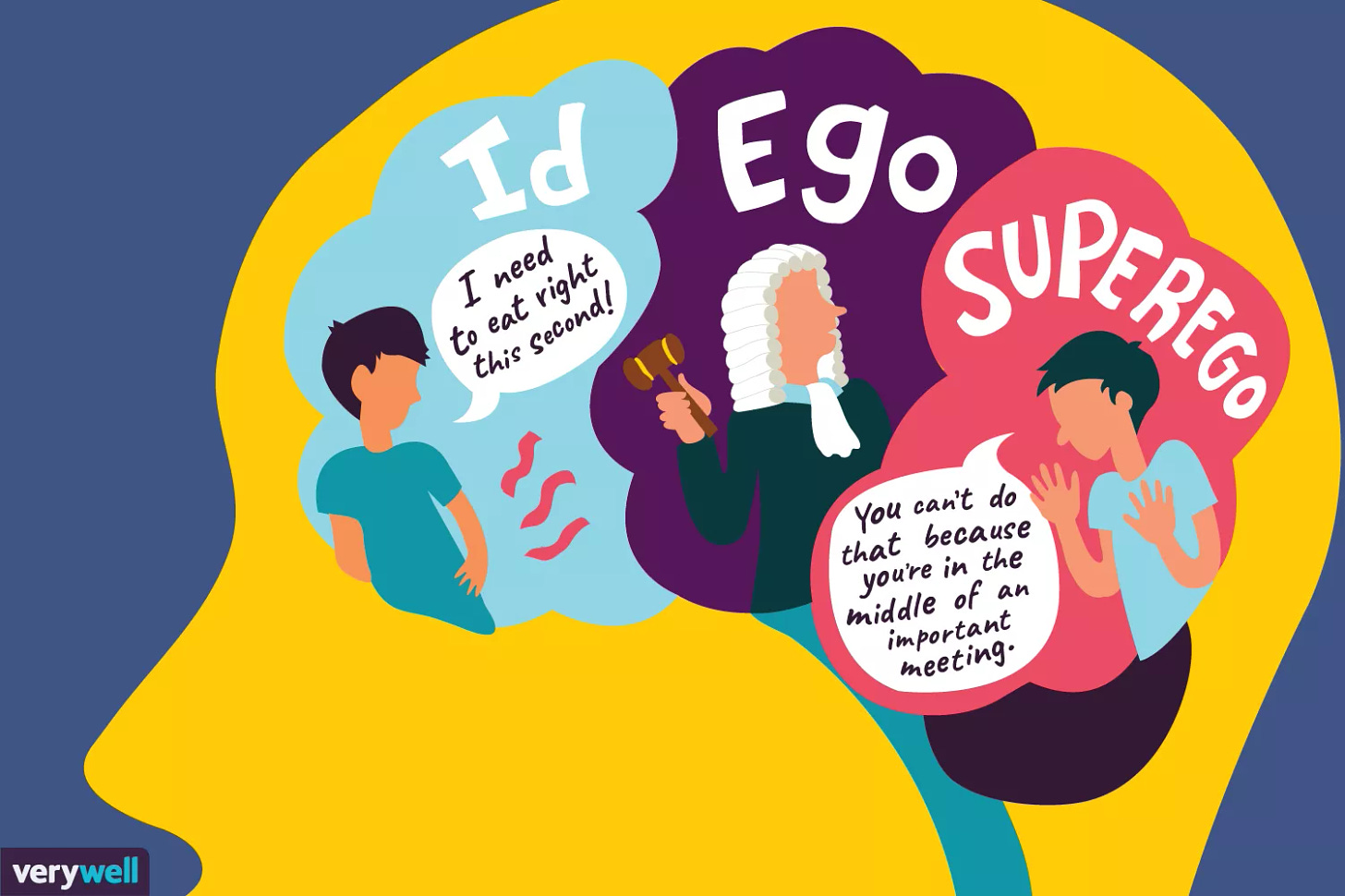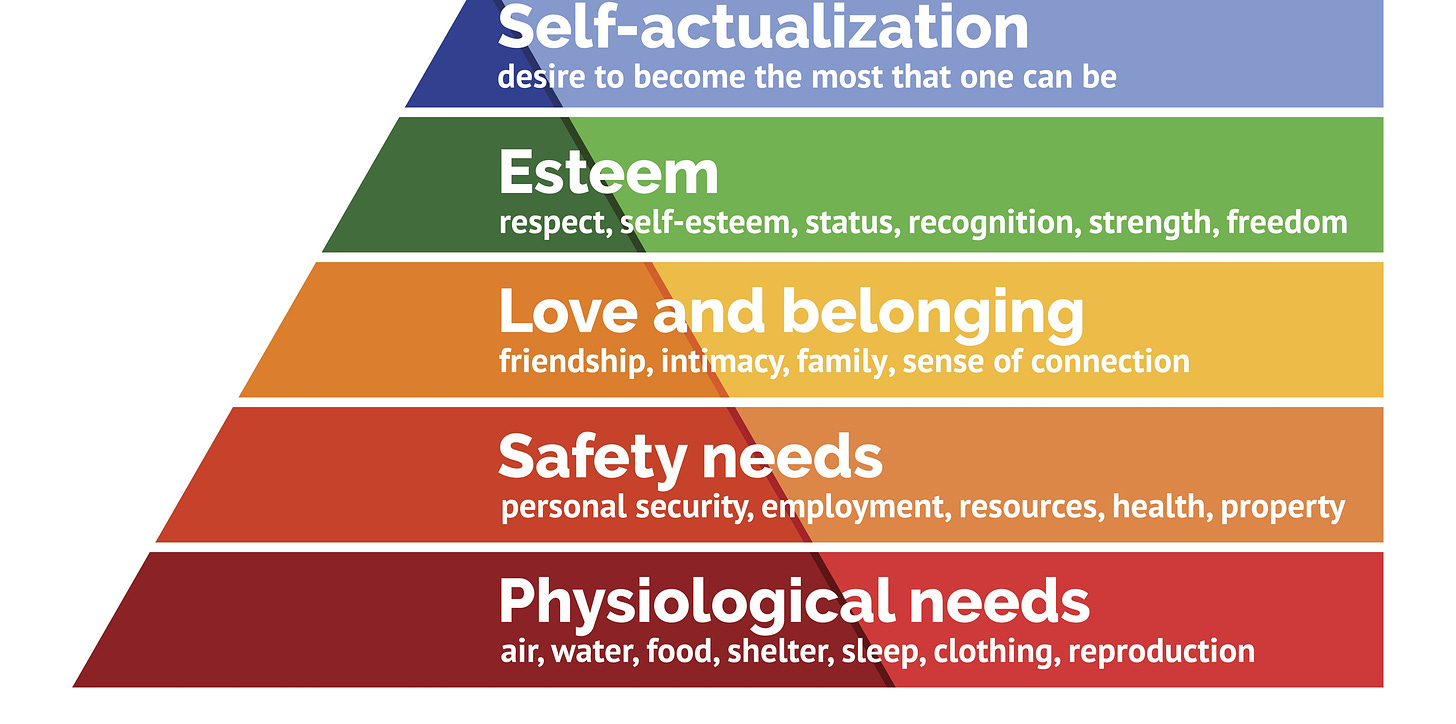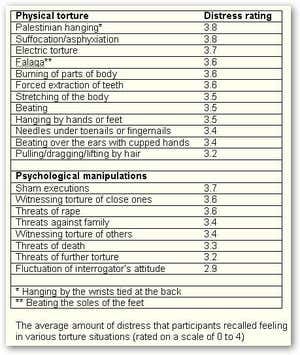This week, I participated in an interesting podcast on the topic “Ego - Friend or Foe?” with some cool tech startup folks from KL.
It was a cosy group of five, organized by the CTO of WORQ, Richard Ong, who then invited BFM 89.9 personality Noelle, who then invited me. Thanks Noelle for the invite! We were joined by David and Chintha, who are in the food tech and health tech startup space respectively.
Richard moderated the podcast based on his current read, Ego Is the Enemy by Ryan Holiday. You can listen to the podcast here:
Enjoy my Malaysian accent! It becomes more pronounced when I’m with my fellow Malaysians. Podcast notes will be bolded.
At 10:52 - I describe the ego based on Freud’s personality framework theory, which is divided into 3 parts:
1) The id: Childlike self, reacts instinctively to pleasure or pain unconsciously
2) The ego: The adult self that faces the external world, which deploys ego defense mechanisms or ego strengthening mechanisms in current reality
3) The superego: Moralistic code of behavior, governs judicial activity of the mind

Generally, the group thought that the ego should be befriended vs being viewed as the enemy, a perspective also shared by Dr Nicole of The Holistic Psychologist fame. She details a good methodology on how to do ego work here:
In the written version, she also has good instructions on how to access mindfulness with a positive affirmation:
I am safe and I choose a new way to experience myself as separate from my ego.
Dr Nicole then details how to observe the ego, identify thought patterns, and practice accessing the ego in a triggered state with a helpful self-inquiry process, ending with a self-appreciation and acceptance grounding practice.
She then ends with:
I know I threw a lot at you. I know that this might feel overwhelming. Or, like it ‘wont work’ or you’re not capable, or you just simply don’t want to. Your ego has been challenged, so you might have some major resistance coming up. Allow yourself to just see the resistance.
This work is difficult. It is life-changing.
Commit to it because you deserve to be free.
At 21:51, I caveat that we need to have the required capacity for resourcefulness in order to transcend unhealthy ego development (regressive behaviors that harm the self/others), build high quality connections with our loved ones, and to serve others. Simply put, you need to feel strong, and be in a mentally strong place to do the work to achieve everything I mentioned in the previous sentence.
In Clay Christensen’s iconic article, “How Will You Measure Your Life?”, he wrote:
Over the years I’ve watched the fates of my HBS classmates from 1979 unfold; I’ve seen more and more of them come to reunions unhappy, divorced, and alienated from their children. I can guarantee you that not a single one of them graduated with the deliberate strategy of getting divorced and raising children who would become estranged from them. And yet a shocking number of them implemented that strategy. Two of the 32 people in my Rhodes scholar class spent time in jail. Jeff Skilling of Enron fame was a classmate of mine at HBS. These were good guys—but something in their lives sent them off in the wrong direction.
Even highly qualified CEOs with big egos can break when under extreme stress. They can land in jail from unethical behavior or their marriages end up in divorce. These are choices that they made based on their value systems and whatever mental/emotional capacity they had left at that point in time, likely operating at the second bottom layer of Maslow’s hierarchy of needs:

When threatened, they keep their egos safe by deploying ego defense mechanisms to protect their “safety needs” for their own sense of inflated personal security, health and wealth, at the expense of disenfranchising shareholders or losing connection with loved ones. These ego defense mechanisms can manifest in the form of denial, repression (burying emotions), displacement and projection (directing negativity towards innocent parties).
These ego defense mechanisms operate at an unconscious level - where your Id (child) ego takes over your adult ego, and you’re reacting on reflex (reactive behaviors to purely avoid pain or crave pleasure completely governs consciousness). For example, bad situation occurs, results in: reactive behavior to avoid pain, such as drinking oneself senseless, or ghosting. Rinse, repeat. At some point, reactive behaviors may have helped us survive, but unless we evolve our thinking, these behaviors will no longer serve us in adulthood, and can even keep us trapped in trauma patterns. Reactivity is a lot closer to home than we think. It exists in the commitment phobic ex (avoid fear of commitment = avoid pain). The Bumble date who ghosted (avoid uncomfortable conversation = avoid pain). The Taiwanese MPs who threw chairs at each other (crave control). The couple yelling their heads off over dirty laundry (crave clean laundry AND control). You know what I mean. Our minds attribute meaning towards internal and external events every waking moment of our lives, and if we haven’t developed enough self-awareness on our triggers and thought patterns, we’d be constantly reacting like a child. In order to lessen child-like, reactive behavior, therapists advocate for inner child work to be done to heal unconscious trauma wounds such as emotional abandonment.
Obviously, one can’t do ego work in a reactive state. It’s like trying to get a POW stuck in jail to rejoice at his freedom. We’re the prisoners of our own minds, unless we have the tools to set ourselves free. The mind needs to be trained into self-awareness with mindfulness tools such as breathwork to palliate the mind and body (which would likely be in a high level of physiological torment) when triggered.
To show how tortured the mind can get, here is a study that shows how psychological pain can be just as severe as physical pain:

So, imagine if your ego is perceiving a threat to its survival, or can barely just survive from the psychological pain — it’s going to definitely be under high distress. If you are not properly grounded in some kind of spiritual faith or have strong personal ethics, you’re going to basically get a shit show of reactivity (aggression, repression, etc). Which will blow up in your face if you’re not careful, one way or another. Either that, or you do a slow fade in life by getting stuck at a certain developmental stage in your personality where, in hubris, you just. refuse. change.
I refuse to accept that narrative in my life. Personally, it was a long road to do the ego work outlined by Dr Nicole, which till today, I cultivate as a conscious practice — resulting from a combination of hundreds of hours of therapy, self-reflection, meditation, journaling, research, and more. The journey continues still continues to this day.
Today, my work has enabled me to ground myself in mindful thinking, even when triggered. This is a testament of how far I’ve come. I’m living proof that progress in our ego development is possible. Changing our most habitual behavior is possible, with enough self-work.
“Knowing who you are and taking this knowingness into a relationship with another requires two different levels of understanding. You can’t go into a relationship a half and expect the other person to make you whole. It is important that you master yourself before you try mastery with another.”
― Victoria L. White, Learning To Love: And The Power of Sacred Sexual Spiritual Partnerships
I wish for all of you to enjoy the highest form of self-mastery. Sending all of you light and love in your ego work and personal growth journeys.


